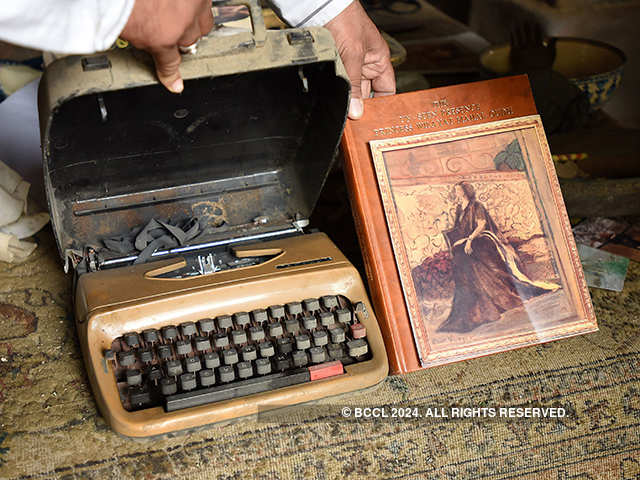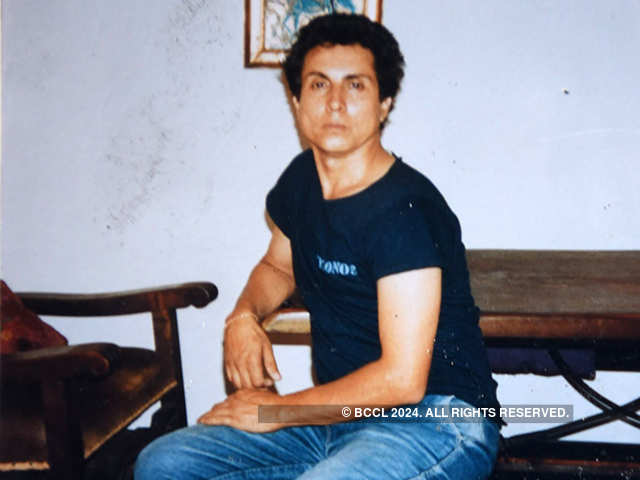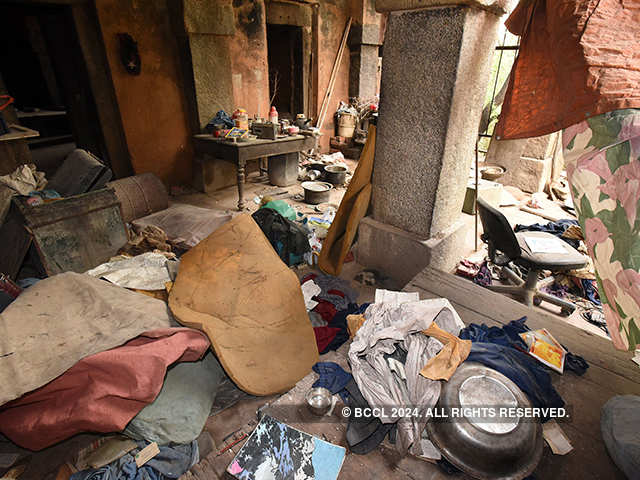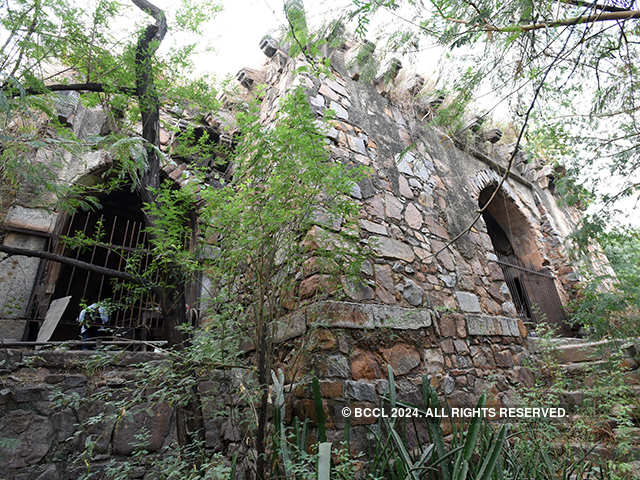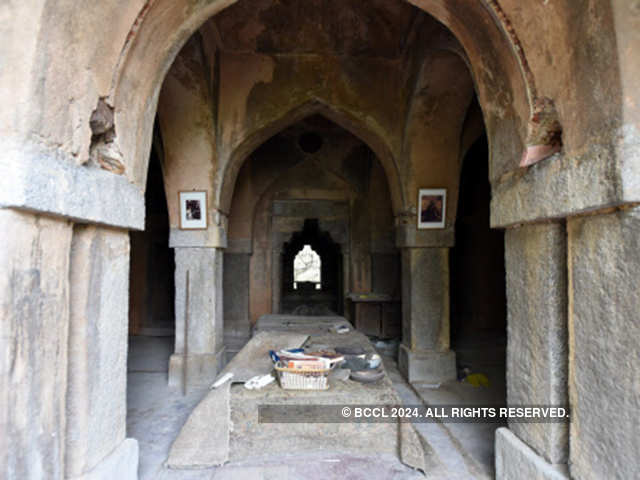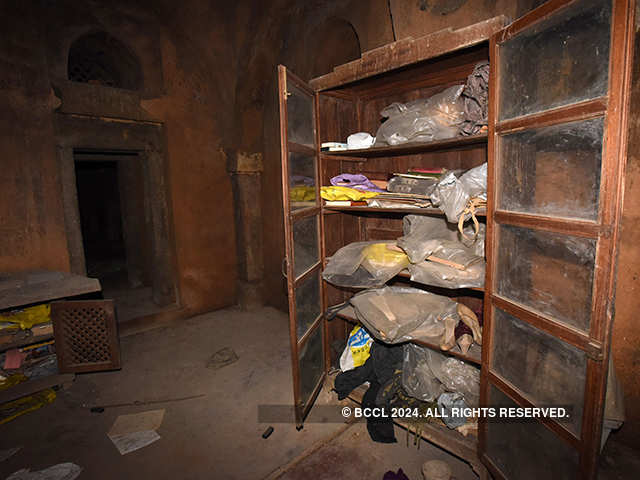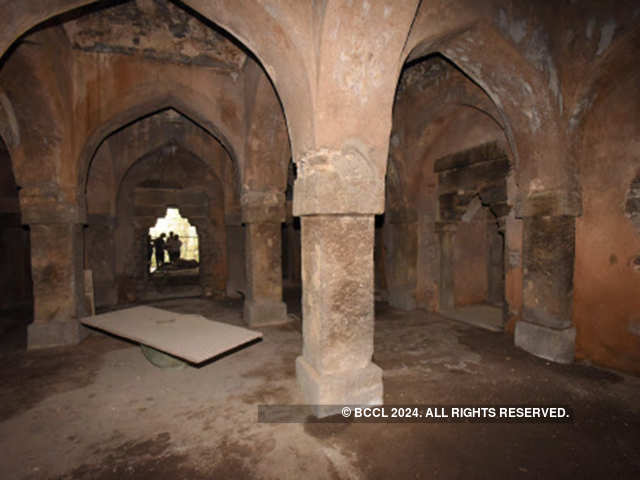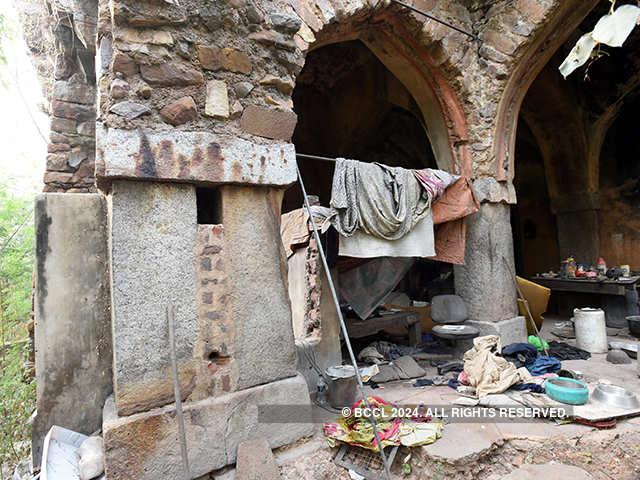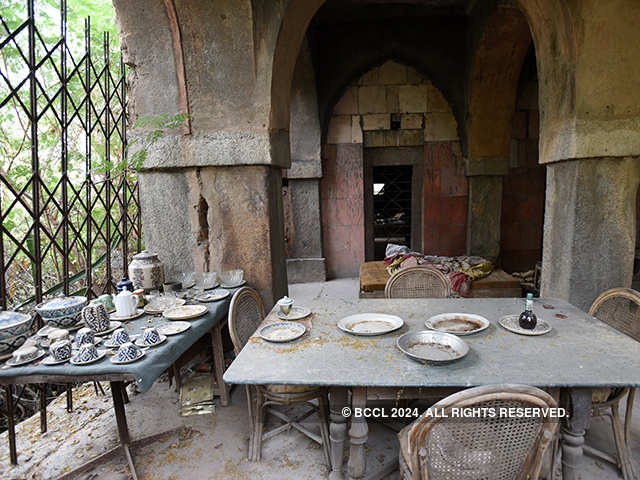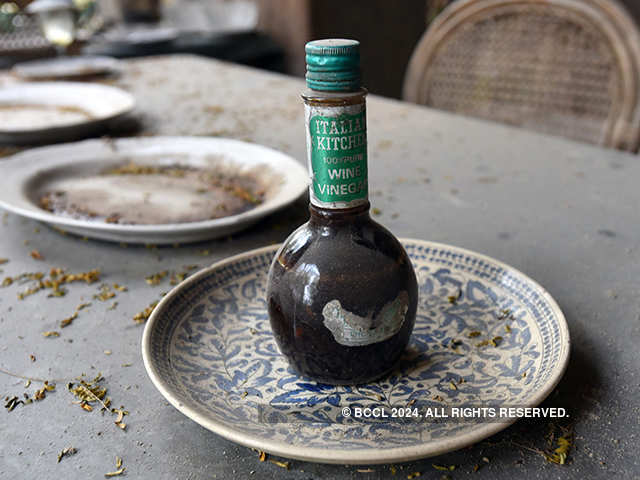Since the advent of Islam, Muslims not only ruled the world, but Muslim Scientists also came up with bazillions of inventions. From their various scientific experiments which contributed in the field of medicine to their vast knowledge about the astronomy i.e. sun, moon, stars; they introduced the world with numerous hidden powers of the Universe. Furthermore, they also contributed in various other fields of science i.e. chemistry, biology, mathematics, chemistry, geography and much more. Few of the big names of Islamic History, like Jabir Bin Hayan, Khwarizmi and Ibn Battuta enlightened the world by their endless knowledge and made their Mark, their inventions not only contributed in the days of yore, even in present day their remarkable work is considered as worth its weight in gold.
1. Algebra
We use algebra in our daily life without even realizing its importance, Algebra was first invented by a Muslim Persian Mathematician
Al-Khwarizmi. He was one of the Renowned Muslim Mathematician who came up with the first idea of raising number into power; many other Muslim mathematicians like
Al-Khayyam and
Sharaf al-Dīn al-Ṭūsīi introduced the world to algebraic geometry and solved cubic equations. Moreover, Al-Khwarizmi and
Al-Kindi were the first to introduce Numerical Numbering which became popular worldwide.
2. Mechanism of Breathing
Although the circulation of blood was first studied by Greek physicians, who said that blood moves from the right to left ventricle of heart through invisible passages of septum, however
Ibn al-Nafis an Islamic Syrian Physician proved that theory wrong and accurately predicted that blood travels from right to left ventricle through the lungs, where lungs purify the blood making it able for human body to survive. His work didn’t get much attention till 20th century.
3. Cryptography
Cryptography is an art of writing or solving codes, this technique might look modern but in actual fact, it is a thousand years old technique. The first explanation of cryptanalysis was given by an Arab Mathematician Al-Kindi in his treatise “ A manuscript on deciphering cryptographic messages”. He was the first one to suggest that Quran discovered the letter frequency and every Arabic letter has a certain frequency, in his treatise, he also described the first frequency analysis method.
4. Refinement
Jabir ibn Hayyan, a prominent Muslim chemist and also known as father of chemistry, was the primary one who came up with the process of distillation for separating different liquids. He also introduced many of the other processes of Refinement in Alchemy i.e. Evaporation, filtration, purification, oxidation and crystallization. These processes are even frequently used in today’s chemistry.
5. Surgery
A Muslim surgeon Named
Al Zahrawi brought the world into contact with surgery, therefore also known as father of surgery , he invented hundreds of surgical instruments in which few of them are even used widely in present day i.e. precision scissors, needles, bone saws etc. He is also the author of one of the most influential books of medicine Kitab Al Tasrif, which includes the treatment of over hundred deceases and various methods of surgeries.
6. Length of the solar year
A Muslim Astronomer named
Al-Battani was the first one to calculate the length of the solar year, he came up with the astronomic and numeric tables which were used to find the direction of Qibla as it was important to Muslims. Moreover, he also predicted the movement of sun, moons and other planets in the solar system.
7. Quadratic equations
From some of the major contributions of Muslims in mathematics, Quadratic equations is one of their inventions. A Persian Muslim Mathematician
Abul Wafa Buzjani and Poet developed many quadratic equations numerous of them are still in use. He also solved thirteen forms of cubic equations.
8. Law of Refraction
Law of refraction which is used to find the relationship between angle of incidence and refraction, also known as Snell’s law was invented by a Persian Muslim Physician
Ibn Sahl. In his manuscript “On Burning Mirrors and Lenses” He presented different shapes of lenses that focus light with no geometric aberrations and produced first Aspheric lenses.
9. Shape of earth
Muslim astronomers were very quick on the uptake, they precisely calculated the shape of earth as sphere, and five hundred years later of their inventiom, Galileo said that Muslims calculations about the shape of earth were very accurate. Many of the leading Muslim mathematicians also invented spherical trigonometry.
10. Vaccinations and Drugs
Muslims Contributed Widely in Medicine, the process of vaccination was also first introduced by Muslim scientists for the treatment of small pox in Turkey, Later it was introduced to Europe by Turkish. The initial process of using plants as medicine to cure deceases was also introduced by Muslims. A very Notable scientist
Ibn Sina author of book “Al Qanun Fil tibb” contributed hugely in the field of medicine, which described several Pharmacological Methods and hundreds of drugs. Moreover, Mercuric chloride which is used to heal wounds was also invented by Muslims.
11. Pin-Hole Camera
An exceptional Arab scientist named
Ibn Al Haytham who contributed in Mathematics, astronomy and physics frequently, but his most influential work was done in the field of optics. He not only proved that light rays enters into our eyes rather than leaving it, but he also invented the very first pin hole camera, after one day he contemplated on light rays emitting from his window hole, he concluded that, the smaller the hole gets the sharper the rays becomes and implemented this technique to invent his first camera. Therefore, we should thank Haytham for making it possible for us to capture our memorable moments.
12. Windmills
In 634, Persian caliph Umar hired an engineer who invented the first wind mill. Those very first wind mills were constructed in deserted areas due to access of wind pressure. It was built by using 6 to 12 sails covered with clothing material, they were used to draw water from streams and to grind corn. Later European countries adapted this technique to construct energy producing windmills.
13. Parachute
In the modern world
wright brothers may take the credit of first airplane, however thousand years before their invention, a well-known Muslim engineer
Abbas Ibn Firnas made the very first attempt of flying, by using wooden struts he constructed a machine and tried to jump from a mosque. Although he failed his first attempt but didn’t lose his hope, and later at the age of 70 he gave a second try to fly and this time he succeeded, he used eagles feathers and silk for his flying machine this time, though he had managed to fly but on landing his machine crashed which later he realized was due to the absence of tail in his flying machine for landing.
14. Astrolabes
Muslim astronomers contributed vastly in astronomy,
Astrolabes is one of their inventions. Astrolabe is used to determine the time and to find the altitude of planets. Muslim scientist Fazari made very first brass astrolabe to find the direction of Qibla and to determine the hour of prayers, many of those ancient models were so precise and perfect that few of the museums still displays those models.
15. Gun powder
Although Chinese invented gun powder also known as “Chinese snow” but they used it for fireworks while Muslim chemists derived its formula and used it for military purposes. Muslims were the first one to invent weapons filled with gun powder i.e. fire arms, grenade, crude cannons, riffles, sulfur bombs, pistol for their defense in wars hundred years before they were even invented in Europe. Moreover, in 15th century Arabs invented first Rocket and torpedo by using gun powder.
16. Crankshaft
Crankshaft is used to convert the rotatory motion into linear motion, which is one of the most worthy invention of Muslim scientist, it was invented by a Muslim engineer
Al-Jazari in 1206, he used circular wheel motion and several crank pins moving back and forth in straight line to make a crankshaft, this crankshaft was used in water raising machines to raise water for irrigation purposes, this method is also used many of the modern machineries.
17. Telescope
Taqi ad-Din Muhammad invented the magnifying device. In his book, the Light of the Pupil of Vision and the Light of the Truth of the Sights, He described about an instrument that could magnify objects located far away and this device could also help to see the details of distant objects, in another book he wrote how this instrument was used and made, later following his given instructions this device was made and named as telescope.
18. Pendulum
In order to measure time by oscillations the first pendulum was made by a Muslim scientist
Ibn Yunus during 10th century, he was the first one to study the oscillatory motion, later this technique was used in clocks by Muslim physicists during 15th century.
19. Clocks
Although, Huygens is said to be the inventor of first clock, however various kinds of mechanical clocks were created by Muslim Engineers since the time of yore, a well-known watch maker Kutbi made the very first watch. In 15th century, Muslims also invented Mercury escapement clock which was copied by Europeans. Moreover water clocks, pendulum clocks, alarm clocks and astronomical clocks are also their inventions. Muslims used these clocks for observations and to determine their prayers timings.
20. Submarine
First submarine named “tahtelbahir” was invented by Ottoman Muslim Architect
Ibrahim Efendi. Later an Ottoman writer Humayun compared this submarine with alligator and wrote that, an alligator like machine submerged into the sea and crew inside it were able to breathe under the sea through pipes, he also wrote that after staying under water for half an hour it emerged back with five people walking out from the mouth of this submarine.
21. Tooth Brush
The last prophet of Allah and one of the most influential personality of Islamic History Muhammad ﷺ gave supreme significance of cleanliness. He said “Cleanliness is half the faith”. He was the first one who used the twig of Meswak tree as a toothbrush to clean his teeth and freshen His breath; toothbrush was therefore invented by Him. Meswak is very effective to fight against plaque and bacterial infections. Using it may seem outdated but its twigs are still used by Muslims because of the benefits of its extracts. According to a study in 2007, extracts from
Meswak is 20 times more effectual than ordinary mint, therefore even in modern toothpastes substances from meswak trees are commonly used.
22. Coffee
The most widely drink Coffee was first introduced by Muslims in 9th century, when an Arab Man Khalid observed that his goats started to look livelier after eating some kind of berries. He boiled those berries and made a drink which became popular as Qehwa, in early times many Sufis and religious people used to drink it occasionally to stay awake and to perform their payers at late night. Later coffee came to Mecca and turkey, the first coffee house was built in London also by a Muslim Turk.
23. Fountain Pen
In 953, Sultan of Egypt Al-Mu’izz wanted the first pen that would not stain his clothes or leak ink, he suggested that it should contain ink inside it rather than having a container with it, the first fountain pen was therefore invented to fulfil his demand. A Muslim craftsman made the first fountain pen with a tube filled with ink inside it, it worked by gravity to move the ink to the tip of the pen which enabled to write through it.
24. Paper
On our day to day basis, we use stuff without even knowing their worth and history behind them. Many of them were invented way back at the time of yore and from a pile of those historical inventions, a handful of them came up from inventive Muslim scientists. In this third part of the series we will cover few of our daily life necessities that were invented by several Great enthusiastic Muslim Personalities.
25. Quilting
Muslim Army first wore the quilted straw filled shirts for their protection and as a guard against the Crusaders’ metal armor chafing, it was made by sewing two pieces of clothes in between with a layer which also provided warmth and isolation to them, and hence from there it gained recognition, especially the cooler regions of Europe adopted this method of quilting to keep theirselves warm.
26. Soap and Shampoo
Since in Islam much priority is given to cleanliness, specially before prayers, hence not only first toothbrush but also the first soap and shampoo was invented by Muslim scientists, Arab chemists mixed sodium hydroxide, vegetables and oil fragrant to produce first soap, later shampoo was introduced to English also by a Muslim chemist who opened Mahomed’s Indian Vapor Baths in England, Muslims perfected the recipes of soap and shampoo and those recipes are even widely used at present time.
27. Glass and lens
Abbas Ibn Firnis was not only the first one to fly but he was also the first one to invent glass vessels and lenses for magnification, he invented the first eye glasses. Moreover, Mirror glasses were also first introduced by Muslims, many Venetians learned the technique of manufacturing fine glass in 9th and 10th century.
28. Guitar and Lute
Yes, guitar in not a latter-day Invention, Guitar and Lute were the musical instruments invented by the ancient Muslim world, Music was common in Arabs and Turks. They invented a pear-shaped instrument which they called “oud”, and Guitar is the advanced form of oud.
29. Soup
In 9th century, a Muslim scientist named
Ali Ibn Nafi moved from Iraq to Cordoba where he introduced the first 3 course meal system in which soup was served before meat or vegetables and at the end fruits and nuts were served, this liquid food was made by boiling vegetable, meats and using several spices, therefore due to its toothsome quality it gained high admiration.
30. Perfume
Since the time of Muhammad (P.B.U.H) perfume was used before prayers, it was known as attar in Arab, which was made by natural perfumed oil and plants. Attar is still widely used by Muslims. Moreover, two of the Arab chemists
Jabir ibn Hayan and
Al Kindi were the first one to establish perfume industry, Jabir ibn Hayan developed the methods refinements which helped in perfume making, however Al Kindi combined various plants and herbs to produce different scents.
31. Hospitals
The idea of hospitals was first came up by Muslim world, when Prophet ﷺ started the services for ill people in His mosque. Later during the reign of Harun Al Rashid in Baghdad the first official Hospital was constructed following the footsteps of Prophet ﷺ, where health care services were provided free of cost to sick and injured people. It quickly gained much fame and many of the hospitals started to construct across the globe.
32. Planetarium
With his invention of first air plane and glass, Ibn Firnas was also the first Muslim Scientist to invent planetarium, the modern large dome shaped planetariums where the scene of solar system appears more realistically came up from the idea of Firnas, he had a Planetarium in his house from where stars, moons, celestial bodies, meteors and lightening could be seen, several special personalities like kings and scientists used to visit and admire him for his exceptional work.
33. Gardens
Although ancient Europe had gardens for growing herbs and plants but in 11th century Arabs invented first ornamental gardens and portrayed it as a place of beauty and comfort. Europeans saw the first royal garden in Spain and started to construct the same. Muslims mainly used tulips and carnation plants to decorate their gardens.
34. First University
Islam gave much significance for seeking education, many of the small schools and education centers were built since early Muslim history. However in 9th century a princess named Fatima al-Fihri in Morocco established the first academia, which was named as University of al-Qarawiyyin, it mainly focused on the education of young girls, education was given free of cost and many of the international students also joined this university for the sake of education.
35. Pointed arches and Domes
Muslims had few of the best architects in the history like Sinan who was the master architect of Ottoman Empire. Muslim architects first used the pointed arches in their buildings which were later adapted by Romans and they built rounded arches, however the pointed arches were more strong and effective. Domes were also first built by Muslims, Muslim used to construct mosques, castles and palaces using these techniques
36. Pay Cheques
The Pay Cheques we use to deliver salaries every month may sound like a modern invention, but in point of fact it was invented by ancient Arabs. The word Cheque is derived from the Arabic word Saqq, which means a written oath for the payments after the delivery of goods, as this method was safe and avoided money to be transported for long distance with dangerous routes, people started to favor it and later it became famous in rest of the world.
37. Graphic Processing Unit
Hossein Yassaie invented first GPU PowerVR MBX, from 2000 up till now these chips are providing 3d graphics for many latest mobile systems i.e. Samsung and Apple. PowerVR chipsets also provided 3d graphics to home systems. In 2012, Hossein Yassaie for his services in technology also received knighthood award.
38. Sky Scraper
In 16th century in Sibham a city of Yemen, also known as the oldest skyscraper city, first constructed up to 500 tower buildings which were about 75 to 100 feet tall and had 5 to 11 stories. Furthermore, a Muslim Bangladeshi engineer Fazlur Khan presented Designs of structural system which gained much worth and were implemented in the construction of Sears tower and John Hancock Center, he was also distinguished as the Einstein of structural engineering, and one of the greatest architecture of 20th century, Burj Dubai the tallest skyscraper of the world and Petronas of Malaysia the world’s tallest twin towers were also constructed by Muslims.
39. Video hosting service with web browser
The first person who came up with the idea of Video hosting service with web browser was a Bangladeshi Engineer Jawed Karim, he is also the co-founder of YouTube.
40. Electronic Tape Music
A student Halim El-Dabh, in 1944 first used wire recorders to record the sounds of ancient zaar ceremony. He later developed the first electronic tape music in 1944. In the history of studio, He was one of the most remarkable composers.
Muslims are few of the most quick-witted people and geniuses of the world. They did exceptional work in all the fields of life, not only their inventions but their dozens of advantageous books helped change the world. To make our lives more comfy, the legendary Muslim scientists played the utmost role, yet the bitter truth is that in this in this day and age, Muslims are mis-believed as Terrorists. However, Islam extremely condemns Terrorism and is the religion of peace and harmony.

